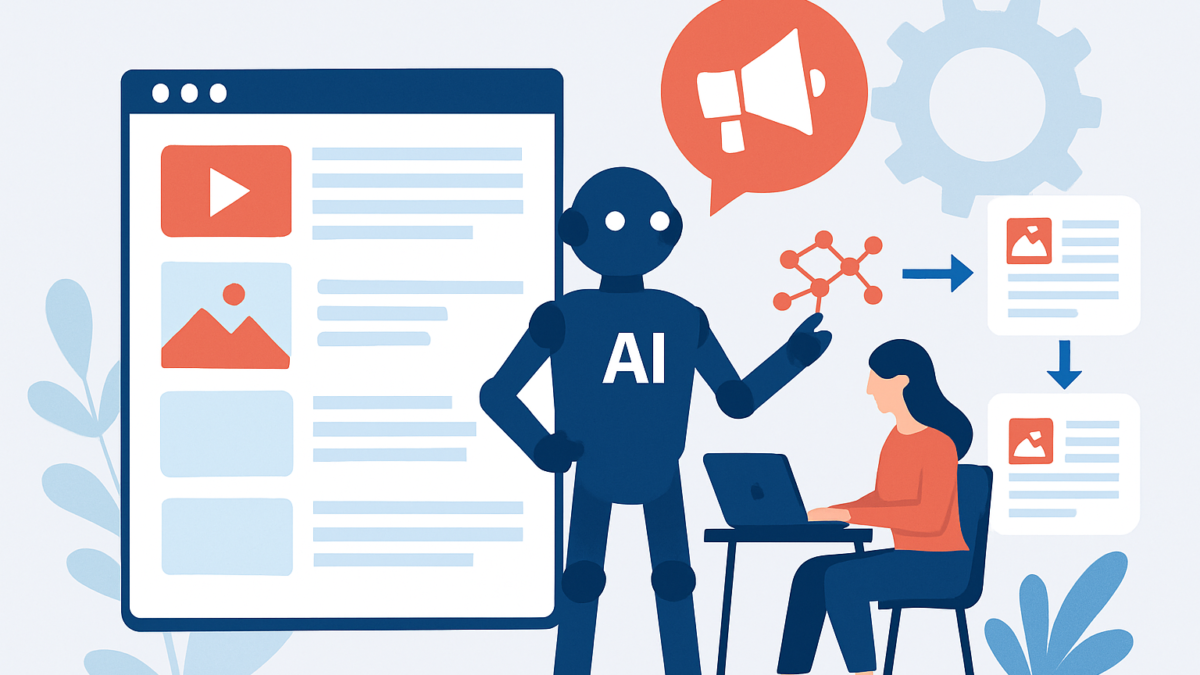How AI Is Transforming B2B Content Syndication in 2025
Top AI Innovations Shaping B2B Content Syndication in 2025
Introduction
In 2025, artificial intelligence (AI) is not just a buzzword in marketing anymore. It has fully embedded itself into the B2B content syndication ecosystem, dramatically reshaping how brands connect with their target audiences. Companies that leverage AI are seeing better ROI, improved targeting precision, and higher lead quality compared to traditional syndication models.
In this blog, we’ll explore how AI is revolutionizing B2B content syndication and why your business needs to embrace it now.
Hyper-Targeted Audience Identification
Gone are the days of broad syndication lists. AI-driven platforms use real-time behavioral data, account intent signals, and predictive analytics to identify high-potential accounts and decision-makers.
Instead of blasting content to thousands of generic contacts, AI ensures that your whitepapers, case studies, and webinars reach the 100 accounts most likely to convert.
Example:
Platforms like 6sense and Demandbase integrate AI-powered predictive scoring to optimize account-based content delivery, helping marketers avoid wasted ad spend.
Dynamic Content Personalization
Generic one-size-fits-all content doesn’t work anymore. In 2025, AI tools automatically tailor content messaging based on the prospect’s industry, job title, company size, and even recent search behavior.
This personalization leads to:
- Higher engagement rates
- Better conversion rates
- Shorter sales cycles
Pro Tip: Marketers are now integrating AI copywriting tools like Jasper and Copy.ai to generate personalized nurturing emails and landing page variations based on syndication responses.
Real-Time Campaign Optimization
AI doesn’t just plan campaigns—it constantly learns and improves them.
By monitoring engagement metrics like open rates, click-through rates, and time-on-page, AI tools can:
- Shift budgets toward better-performing assets
- A/B test different syndication channels
- Retarget high-interest users with relevant follow-up content
This dynamic adjustment ensures that every marketing dollar is spent wisely.
Example:
Programmatic platforms like RollWorks and Terminus automatically adjust content delivery depending on real-time user behavior signals.
Predictive Lead Scoring and Qualification
Not all leads are created equal. AI helps sales and marketing teams prioritize their outreach by assigning predictive scores to each syndicated lead.
AI analyzes:
- Firmographic data (industry, revenue, employee count)
- Technographic data (CRM, Martech stacks)
- Behavioral patterns (content downloaded, webinars attended)
This allows your team to focus first on accounts that show true buying intent, leading to faster conversions and higher sales efficiency.
Smarter Multi-Channel Syndication
Instead of distributing your content only via emails or third-party publisher sites, AI ensures an integrated multi-channel strategy.
Your whitepaper could appear:
- On LinkedIn Sponsored Posts
- In highly-targeted email campaigns
- As sponsored placements on industry-specific content hubs
- As contextual ads via programmatic networks
AI automatically identifies which channel your prospects prefer and delivers content accordingly, maximizing reach and engagement.
Enhanced Attribution and ROI Tracking
One of the biggest challenges marketers faced historically was proving the ROI of syndication campaigns.
Thanks to AI, you can now implement sophisticated attribution models that track a user’s journey across multiple touchpoints.
You’ll know:
- Which piece of syndicated content contributed to a sales opportunity
- How many interactions it took to convert a lead
- What publishers or platforms yield the highest ROI
This data-driven approach allows marketers to make smarter decisions and continuously refine strategies for better outcomes.
Content Performance Prediction
One fascinating 2025 trend is AI’s ability to predict which types of content will perform best—before you even launch the campaign.
Based on historical data, competitor analysis, and audience preferences, AI tools can recommend:
- Optimal blog topics
- Ideal content formats (infographics, reports, podcasts)
- Best publishing windows and promotion channels
This proactive capability minimizes trial and error, making B2B syndication more strategic and less reliant on guesswork.
Conclusion
In 2025, the future of B2B content syndication is intelligent, personalized, and data-driven. Businesses that embrace AI now will dominate their industries, building stronger pipelines, improving lead quality, and shortening the sales cycle.
AI is not here to replace marketers—it’s here to empower them. By working hand-in-hand with smart technologies, marketing teams can achieve greater precision, efficiency, and results.
If you’re not yet leveraging AI in your content syndication efforts, now is the perfect time to start.
You May Also Like: Scale AI: Powering the Future of Artificial Intelligence Through Quality Data





